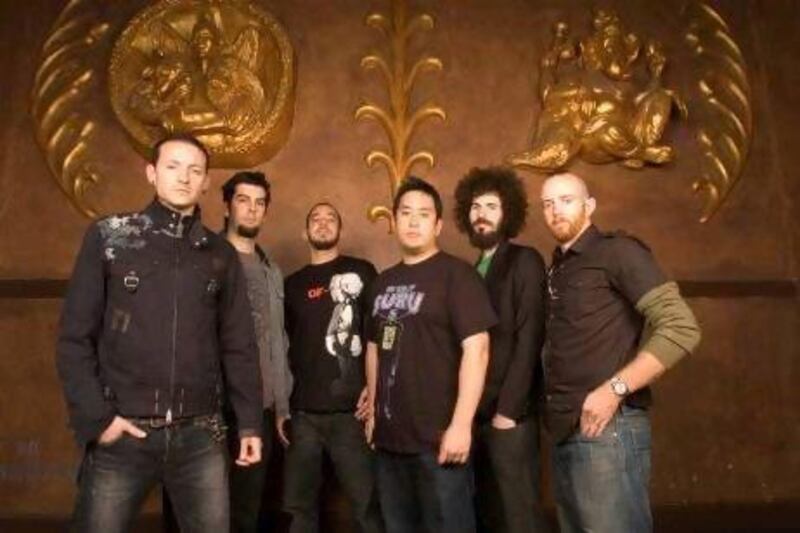Linkin Park Living Things
Warner Bros
**
Reinvention is the Holy Grail of pop music – attempted by many, achieved by remarkably few. It allows artists to navigate the treacherous winds of change, but drastic course corrections can be hazardous, too. From Neil Young's bizarre – but thankfully brief – decision to ditch guitars in favour of synthesisers, to Lil Wayne's dismal attempt at fusing rock and rap, such failures stand as warnings to others of the perils of leapfrogging styles.
In the case of the screaming rockers Linkin Park, reinvention was a necessity. The group arrived at the tail end of the nu-metal craze, hybridising heavy riffs and hip-hop into the most radio-friendly and commercially successful songs that the short-lived genre has ever produced.
But, like Pearl Jam a decade before them, the band had to distance themselves almost immediately from a scene that was already being derided as a tiresome fad.
The Californian rockers' past two albums, Minutes to Midnight (2007) and A Thousand Suns (2010), both attempted to downplay the snarling rap vocals and distorted guitars that had been so central to their early output. They were replaced with electronic beats and layered atmospheric sounds that invited comparisons with U2 (only somewhat legitimately).
The band's fifth album, Living Things, opens with the Europop-flavoured Lost In The Echo, on which heavy guitars seem to have become a distant memory. But despite many of the more unfashionable elements of their sound having been removed, this is still unmistakably Linkin Park.
The dual vocals of Mike Shinoda and Chester Bennington aren't the biggest giveaways, however. The sonic overhaul can't hide the fact that the message being delivered is the same thick-skulled nonsense; a self-contradictory blend of faux victimhood and macho aggression.
The lead single Burn It Down tells the same story. The song explodes with crisp synths and up-to-date production, but the emotional range is as limited as ever. There's no getting away from the fact that this is a band whose only real purpose has been to deliver doses of unspecific angst to disaffected teenagers - probably the ones drawn more towards light arson than poetry.
The record also sees the group attempting sincere reflection (Roads Untravelled, Powerless), Rage Against the Machine for Skrillex Generation (Lies Greed Misery) and generic radio rock (I'll Be Gone). They veer effortlessly from one style to the next, but this only makes the pointlessness of it all even more pronounced.
It seems the more noise American rock bands make, the less they actually have to say. Linkin Park may have turned down the distortion on their amplifiers, but that hasn't made them more worth listening to.





